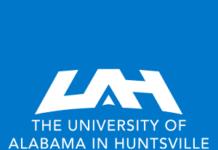Here is this week’s news of grants or gifts to historically Black colleges and universities or for programs of particular interest to African Americans in higher education.
 Hampton University, a historically Black educational institution in Virginia received a $446,000 grant for research on possible genetic explanations for higher breast cancer rates for African American women. The research is under the director of Luisel Ricks-Santi, the founder and director of the Hampton University Cancer Research Center. Dr. Ricks-Santi is a graduate of Hampton University and holds a Ph.D. from Georgetown University.
Hampton University, a historically Black educational institution in Virginia received a $446,000 grant for research on possible genetic explanations for higher breast cancer rates for African American women. The research is under the director of Luisel Ricks-Santi, the founder and director of the Hampton University Cancer Research Center. Dr. Ricks-Santi is a graduate of Hampton University and holds a Ph.D. from Georgetown University.
 Historically Black Xavier University of Louisiana has received a three-year, $500,000 grant from the Andrew W. Mellon Foundation to support initiatives designed to expand its community college student pipeline and to establish a new summer bridge program. The grant will fund on-going university efforts to engage and enroll more community college students by streamlining its transfer administrative process, clarifying course and major requirements, and reducing any course-related hindrances to graduating in four years. It will also fund a new pilot summer immersion program, Mellon Humanities Summer Scholars Initiative at Xavier, which will provide potential community college transfer students an opportunity to “test drive” the university prior to matriculating.
Historically Black Xavier University of Louisiana has received a three-year, $500,000 grant from the Andrew W. Mellon Foundation to support initiatives designed to expand its community college student pipeline and to establish a new summer bridge program. The grant will fund on-going university efforts to engage and enroll more community college students by streamlining its transfer administrative process, clarifying course and major requirements, and reducing any course-related hindrances to graduating in four years. It will also fund a new pilot summer immersion program, Mellon Humanities Summer Scholars Initiative at Xavier, which will provide potential community college transfer students an opportunity to “test drive” the university prior to matriculating.
 Tennessee State University, a historically Black educational institution in Nashville, received a $999,429 grant from the National Science Foundation. The grant will fund research on the effects of high temperatures on microbiome, or the combined genetic material of microorganisms in a particular environment, in cropland soils in Middle Tennessee.
Tennessee State University, a historically Black educational institution in Nashville, received a $999,429 grant from the National Science Foundation. The grant will fund research on the effects of high temperatures on microbiome, or the combined genetic material of microorganisms in a particular environment, in cropland soils in Middle Tennessee.
 Historically Black Florida A&M University received a boost in state funding of $13.7 million from the Florida Board of Governors. The award was based on the university meeting several performance based goals including an increase in the percentage of bachelor’s graduates without excess credit hours, which rose to 51.4 percent – a 9.8 percentage point increase over last year; actual cost to a student earning a bachelor’s degree reduced to less than $8,000, an 18.8 percent decline; and the six-year graduation rate increased to 50 percent, which is an increase of three percentage points.
Historically Black Florida A&M University received a boost in state funding of $13.7 million from the Florida Board of Governors. The award was based on the university meeting several performance based goals including an increase in the percentage of bachelor’s graduates without excess credit hours, which rose to 51.4 percent – a 9.8 percentage point increase over last year; actual cost to a student earning a bachelor’s degree reduced to less than $8,000, an 18.8 percent decline; and the six-year graduation rate increased to 50 percent, which is an increase of three percentage points.
 Jackson State University, a historically Black educational institution in Mississippi, received a $75,000 grant that will fund a symposium aimed at increasing the interest of women from underrepresented groups in STEM disciplines. Barbara Howard, an assistant professor of educational leadership at Jackson State University, will direct the grant program.
Jackson State University, a historically Black educational institution in Mississippi, received a $75,000 grant that will fund a symposium aimed at increasing the interest of women from underrepresented groups in STEM disciplines. Barbara Howard, an assistant professor of educational leadership at Jackson State University, will direct the grant program.











